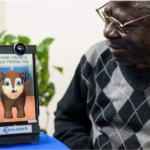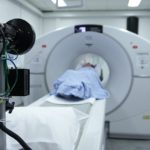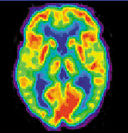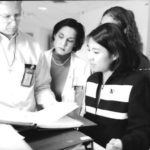Contributed by Edward R. Marcantonio, MD, SM, Professor of Medicine, Harvard Medical School and Director, NIDUS Delirium Research Hub (Research Resources Core) Are you a junior investigator just starting a career in delirium research? An experienced investigator getting into a new area of research, like biomarkers or neuroimaging? Are you interested in publicizing your work, […]
Category Archives: Delirium Research
The Future of Delirium Prevention and Care: A Report from the American Delirium Society Annual Meeting 2019
Contributed by Heidi Lindroth, PhD, RN, Postdoctoral Fellow at Indiana University School of Nursing and Indiana University School of Medicine, Center for Aging Research Envision this future for those hospitalized with an acute illness. Early mobilization is the standard of care. Patients use in-bed cycling and play interactive Wii games to maintain strength and recover […]
Family caregiving for delirious patients: what it’s like, what we know, and what’s next
Contributed by Tatiana Abrantes, BS, Research Assistant, and Annie Racine, PhD, MPA, Postdoctoral Fellow, Marcus Institute for Aging Research, Hebrew SeniorLife Behind many ill patients suffering from delirium is the selfless and inimitable care by a family member, offering support in a variety of ways, whether physically, emotionally or financially. Consider this hospital scene: a […]
Virtual technologies for inpatient monitoring: A new inpatient team member?
Contributed by Nick Bott, Psy.D, from the Clinical Excellence Research Center at the Stanford University School of Medicine, Stanford, CA The Hospital Elder Life Program (HELP) is a well-established multi-domain nonpharmacological intervention for the prevention of delirium in hospitalized older people.1 Strengths of HELP include its focus on early intervention for delirium prevention, the targeted […]
Systematic Review of Delirium Severity Measurement
Contributed by Heidi Lindroth PhD, RN, Postdoctoral Fellow at Indiana University School of Nursing and Indiana University School of Medicine, Center for Aging Research Upwards of 4 million hospitalized adults experience delirium, a form of acute brain failure each year.1-3 The measurement of delirium severity, defined as the intensity of a delirious episode, is growing […]
Case Study: Delirium in an Older, Hospitalized Woman
This post was contributed by Deborah D’Avolio, Ph.D., BC-ACNP, ANP, Associate Professor, Florida Atlantic University The following case study illustrates an example of how delirium can occur in a hospitalized older adult. Mrs. R is a 68-year-old, Italian speaking woman. She was admitted to the oncology unit for ongoing treatment of advanced uterine cancer. Mrs. R lives […]
2018 American Delirium Society Conference
Contributed by Heidi Lindroth, BSN, RN, PhD Candidate, School of Nursing, Program Assistant, School of Medicine and Public Health, Department of Anesthesiology at The University of Wisconsin-Madison The American Delirium Society (ADS) annual conference was held in June 2018 to share the latest advancements in delirium science. A wide variety of topics from delirium training […]
MRI and Delirium: An Interview with Dr. Michele Cavallari
Contributed by Olga Boukrina, PhD, Research Scientist, Stroke Rehabilitation Research at The Kessler Foundation Magnetic Resonance Imaging (MRI) offers an objective and quantitative measurement of brain health. The progress in MR imaging has made it possible to not only accurately measure brain volume, but also to assess the integrity of white matter connections in the […]
Studying the Delirious Brain: Neuroimaging
Contributed by Madeline D’Aquila, BS, Clinical Research Associate II & Annie Racine, PhD, MPA, both of the Institute for Aging Research, Harvard Medical School, Boston, MA. Although successful programs¹ to prevent delirium have been developed and implemented, advances in new prevention or treatment approaches have been stymied by a poor understanding of delirium pathophysiology. Neuroimaging […]
Patient Family Perspective on the Delirium Experience
Contributed by Namrata Patil, MD MPH of Brigham & Women’s Hospital and Faculty at Harvard Medical School, Boston. “Doctor, is he still like that? If he is still the same I am not coming in….,” her voice cracks as she breaks into sobs on the other side of the phone. My patient’s wife does […]









